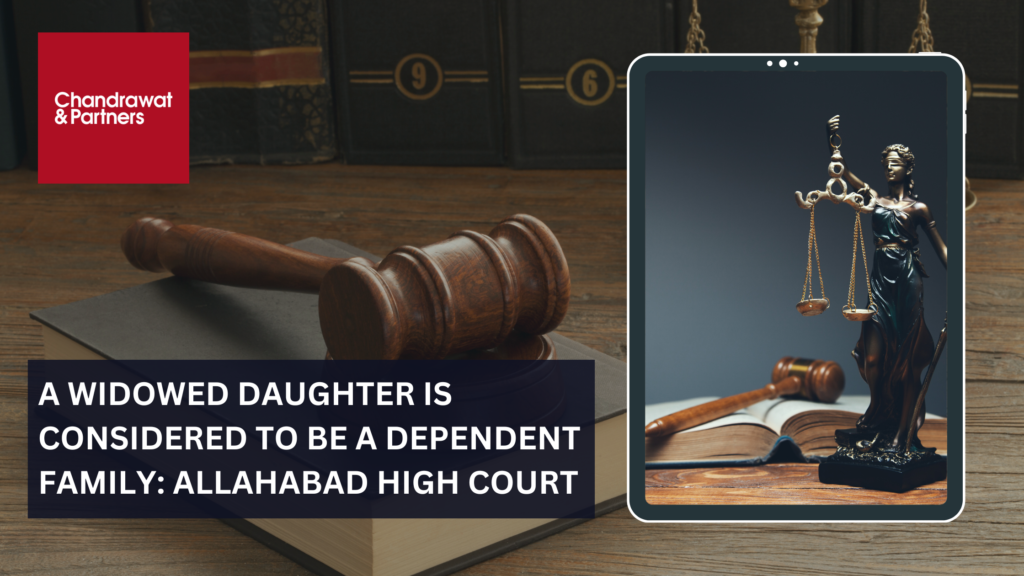Home > Recent Judgements > A Widowed Daughter Is Considered To Be A Dependent Family: Allahabad High Court
Nov 25, 2024

BACKGROUND
In the case between Punita Bhatt Alias Punita Dhawan vs Bharat Sanchar Nigam Limited (“BSNL”) New Delhi Thru. Its Chairman Cum Managing Director And 3 Others, the case in question pertains to the compassionate appointment of a widowed daughter to her deceased father’s office. The applicant’s father, an employee of the general manager (telecom), died in 2011 and the applicant depended on him as well as on her son, and applied for the position in the company. Her claim was denied although she met the qualifications and her family members had affidavits of consent, because the policy strictly states that widowed daughters are not qualified for this scheme. The Central Administrative Tribunal maintained the same and confirmed the earlier decision as the applicant did not fall under the eligibility inclusion. Upset the petitioner moved to Allahabad High Court and via application did claim that she was dependent on her family and was challenged the narrow meaning of the member of family as assigned in the policy of compassionate award of appointment.
ISSUES
- Whether a widowed daughter of a deceased employee can be considered a ‘dependent family member’ under the Scheme for Compassionate Appointment?
- Whether the rejection of the Petitioner’s application on the grounds that she does not meet the eligibility criteria violates her constitutional rights under Articles 14, 16, and 39(a)?
- Whether the competent authority was required to place the Petitioner’s case before the Circle High Power Committee as per the guidelines of Bharat Sanchar Nigam Limited?
- Whether the economic and financial condition of the Petitioner’s family justifies her claim for compassionate appointment?
JUDGEMENT
The Allahabad High Court ruled that a widowed daughter comes under the purview of the term “dependent family member” for purposes of grant of compassionate appointment if she was economically dependent on her deceased father at the time of death. The Court took the view that the term ‘daughter’ be given a broader and purposive interpretation that is in line with constitutional provisions with respect to equality and justice, and turned down the narrow interpretation of the guidelines advanced by the respondents. The competent authority was instructed to review the applicant’s request for compassionate appointment, her dependency on her family, and her obligation to support them.
OBSERVATION
The observation from the case is that the Allahabad High Court, emphasizing a purposive and expansive interpretation of the term “dependent family member,” held that a widowed daughter, if dependent on her deceased parent at the time of their death, qualifies for compassionate appointment under relevant schemes. The Court underscored that a daughter remains a daughter irrespective of marital status and relied on precedents and constitutional principles to conclude that excluding widowed daughters from eligibility would violate Articles 14, 16, and 39(a) of the Constitution. It directed the competent authority to consider the petitioner’s claim, recognizing her dependence and the broader intent of compassionate appointment schemes.
For more information or queries, please email us at
enquiries@chandrawatpartners.com




